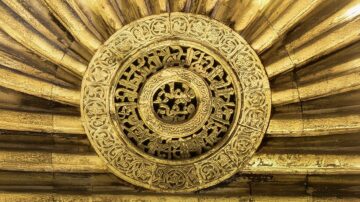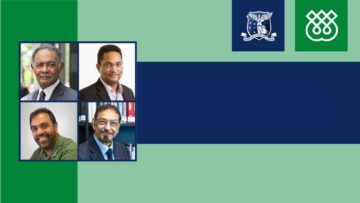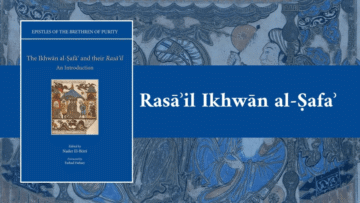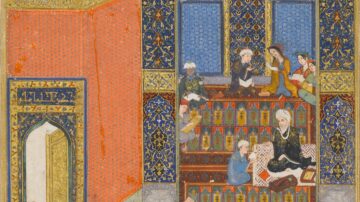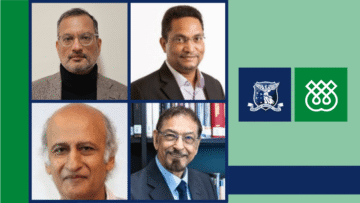Nizari Ismailis and Spiritual Resurrection
On 19 February 2025, The Institute of Ismaili Studies hosted a one-day conference at the Aga Khan Centre and online focusing on the proclamation of Qiyāma (spiritual resurrection) by Ḥasan II in 559/1164 and its wider historical, theological, and cultural significance. Sessions examined manuscript evidence, doctrinal and esoteric interpretations, historiography of the AlamutFortress of the Nizari Ismailis in northern Iran, which fell to the Mongols in 654 AH/1256 CE. period, links with Sufi traditions, and political contexts including interactions with the Mongols. Together, the programme showcased recent scholarship reassessing earlier narratives and expanding the field of Nizārī studies.
Keynote Address
State of the Study of the Emergence of Nizārī Ismailism during the Islamicate Early Middle Period
Shiraz Hajiani
In this keynote, Hajiani calls for a reassessment of received historiographies and periodisations. He foregrounds the multi-local contexts of Nizārī Ismailism across Iran, Syria, and South Asia. He reconsiders satr (concealment) and kāshf (manifestation) in relation to qiyāma and the evolving Imamate. He urges closer engagement with narrative sources and with non-elite voices. He also highlights the value of digital tools and repositories for future research.
Explore panels and watch sessions
Chair: Dr Omar Alí-de-Unzaga
- The Nizari Proclamation of the Qiyāma and its Doctrines: A View from Afar
Delia Cortese, Middlesex University - Sources on the Qiyāma in Ismaili Manuscripts
Karim Javan, IIS - The Qiyāma and the Mongols (Mongols and IsmailisAdherents of a branch of Shi’i Islam that considers Ismail, the eldest son of the Shi’i Imam Jaʿfar al-Ṣādiq (d. 765), as his successor. before 1256 according to the Dīwān-i Qāʾimiyyāt)
Miklós Sárközy, Károli Gáspár University of the Hungarian Reformed Church
Chair: Dr Faisal Devji
- Symbols No More: The Qiyāma and the History of Religions
Jamel Velji, Claremont McKenna College - Pledging Fealty after the Resurrection: Analysing an Arabic Oath of Allegiance from the Alamut Period
Shafique Virani, University of Toronto - The Influence of the Psychology of Resurrection in Nizari Ismaili Thought
Bassam Zahra, Université de Sherbrooke
Chair: Dr Farhad Daftary
- The Qaʾim in Ismaili Thought: Theological Development and Political Context(s)
Murid Shah Nadiri, University of Oxford - Nizari Historiography Near the End of Time: A Reconstruction of the Alamut Library
Aslisho Qurboniev, IIS - Paradoxes of Worship in the Era of Resurrection
Daryoush Mohammad Poor, IIS
Chair: Dr Karim Javan
- Nāṣir-i Khusraw and the Confluence of Ismaili and Sufi Traditions: Philosophical Bridges in Medieval Islamic Thought
Theodora Zampaki, Hellenic Open University - Rethinking Qiyāma: The Emergence and Genealogy of the Nizari Imams
Khalil Andani, Augustana College - Poetic Theology: A Study of the Imam’s Image in the Dīwān-i Qāʾimiyyāt
Seddigheh Kardan, McGill University


